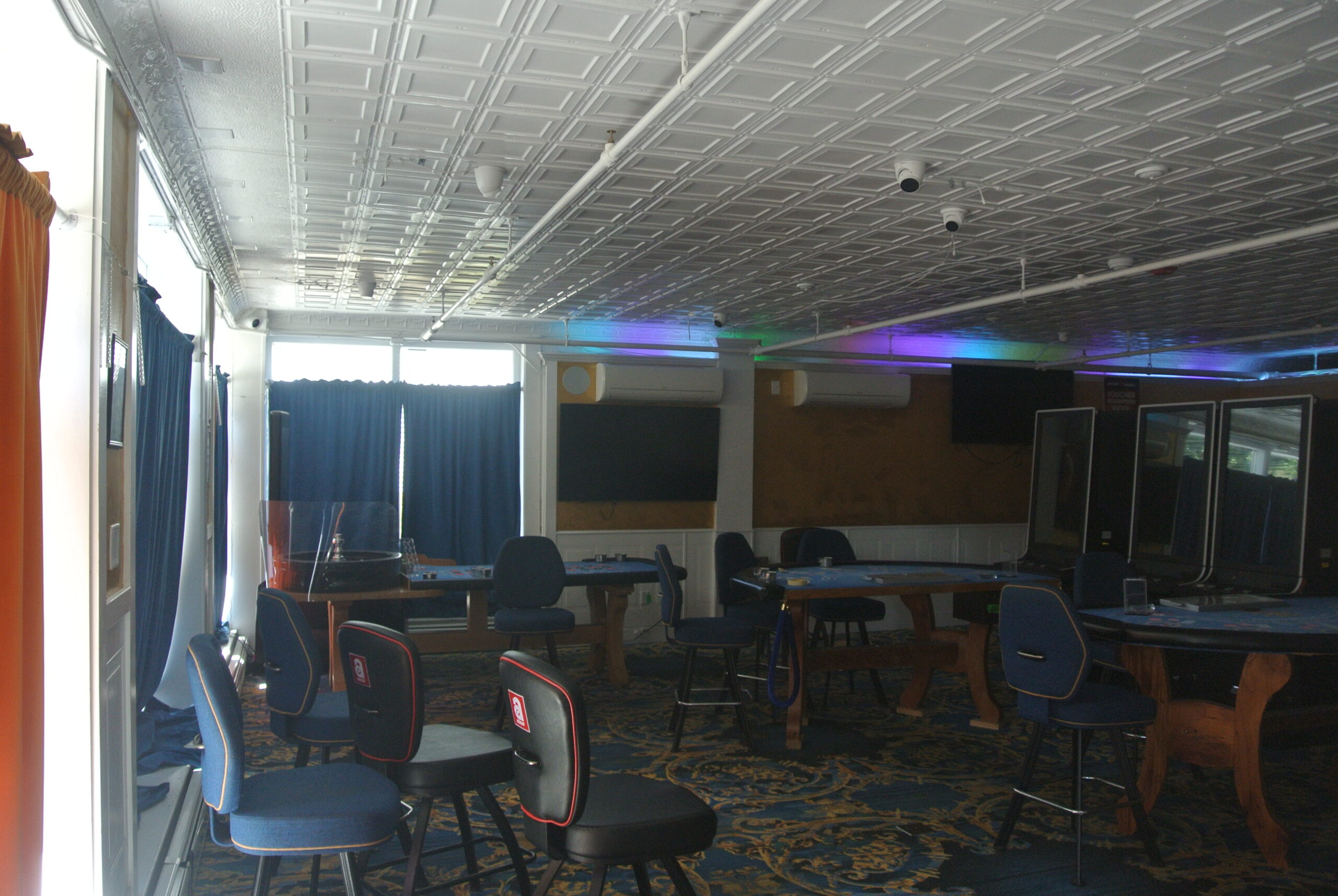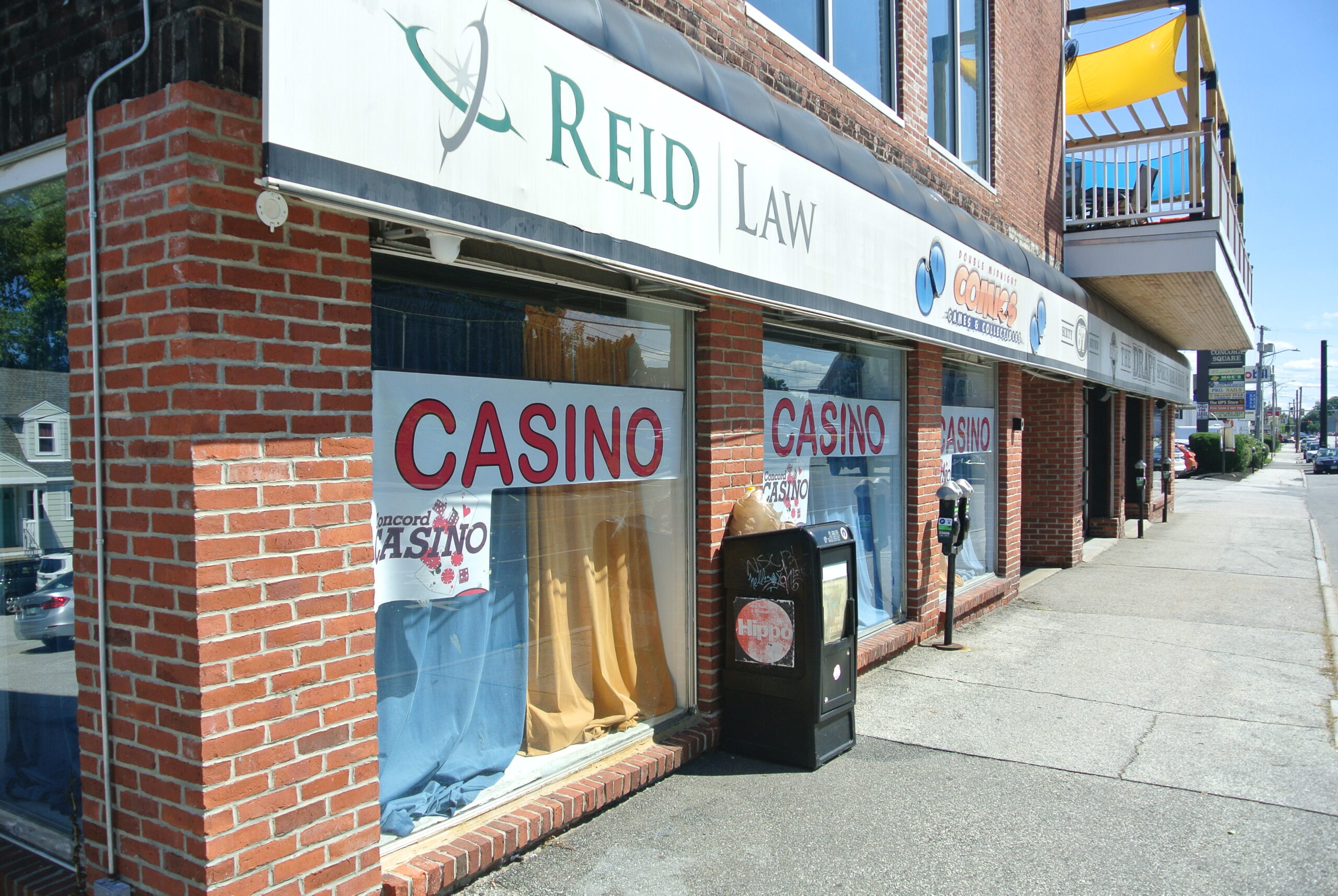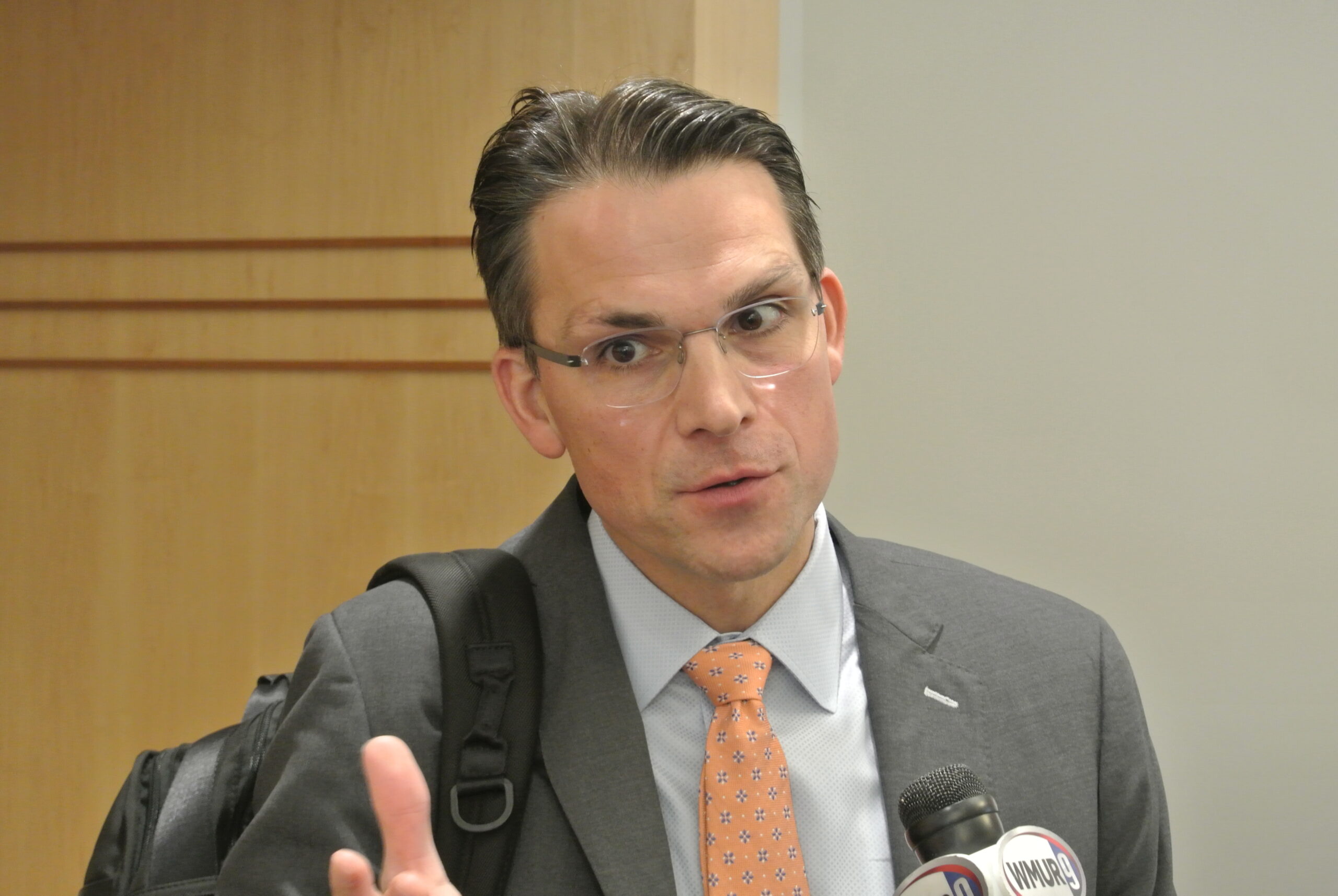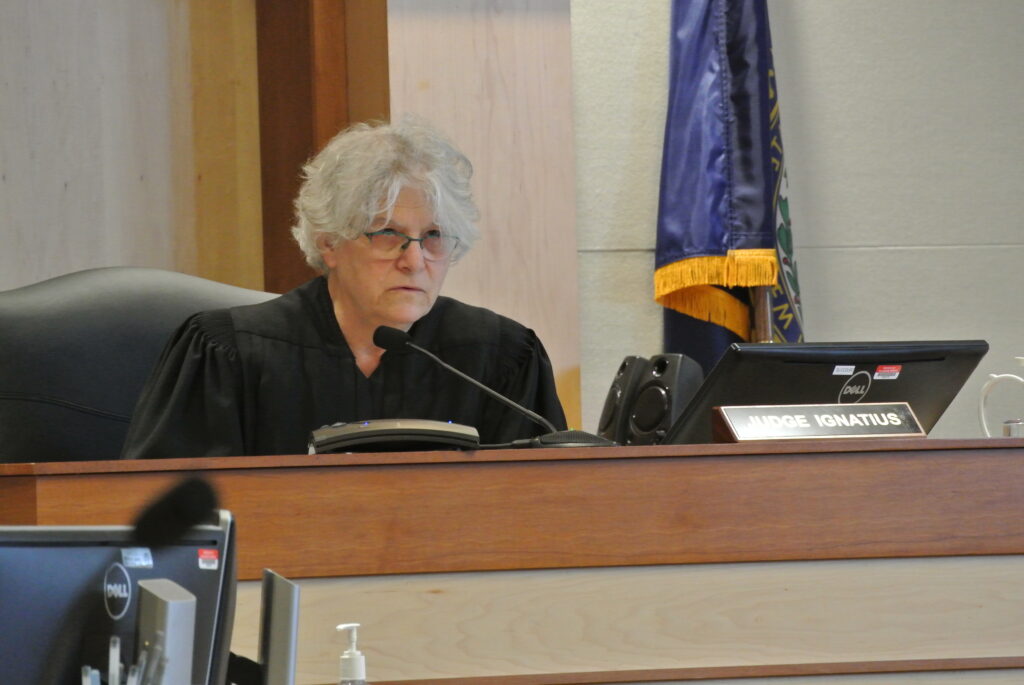Judge to AG’s Office: How Did You Get Privileged Information in Sanborn Case?

Prosecutors involved in the Andy Sanborn criminal probe may have copies of potentially sensitive attorney-client communications.
Sanborn, a former Republican state senator, is at the center of a legal firestorm that began when New Hampshire Attorney General John Formella accused him of COVID-19 fraud last year.
Sanborn filed a lawsuit in Merrimack Superior Court against Formella’s office this summer, but the pleadings in the case are almost entirely under seal. However, a recent court order from Judge John Kissinger sheds light on at least one aspect of the dispute.
Kissinger ordered prosecutors to explain how documents from Sanborn’s lawyers considered legally privileged ended up with the state’s investigative team. Among other steps Kissinger ordered, he wants the state to provide to the court “factual affidavits on issues related to the past handling of seized documents and materials (including electronically stored information), as well as how clearly privileged documents may have been missed or not properly screened by the taint team,” Kissinger wrote in an Aug. 23 order.

Interior of Andy Sanborn’s Concord Casino visible from locked entrance.
Kissinger’s order indicated there are close to 6,700 documents as part of the discovery in the ongoing investigation thus far. Some of them in a commercial legal database program called Everlaw. Everlaw gives attorneys and law firms the ability to control and share information in large cases, and is frequently used to share discovery.
The order states that a taint team was handling discovery documents before handing them to prosecutors in the investigation. Prosecutorial taint teams are typically prosecutors not connected to the case that is under investigation. The taint team is supposed to read through and examine discovery, removing information considered privileged before giving the rest to the investigating team, or case team.
Prosecutors have been instructed to provide Kissinger an audit of the state’s activity in the Sanborn Everlaw documents, showing which prosecutor viewed or downloaded any particular document. Sanborn’s legal team is under orders to provide Kissinger legal arguments for why the information should be privileged.
Communication between lawyers and clients is privileged, meaning it does not have to be disclosed to police or prosecutors. That protection extends to evidence that can be obtained through discovery requests, subpoenas, and even in what is said in sworn depositions. Clients may waive the privilege protection if they choose.
After accusing Sanborn of making false statements in filing for business COVID relief funds, and then spending the part of the money on luxury sports cars, Formella announced his office would instigate a criminal investigation into Sanborn and his wife, state Rep. Laurie Sanborn (R-Bedford.) Both Andy and Laurie Sanborn are owners of Win Win Win LLC/Concord Casino, the business that received $844,000 in COVID money.

Despite the public and damning allegations Formella made last year, neither Sanborn has yet been charged with a crime. Andy Sanborn’s New Hampshire Gaming License was suspended in December after an administrative hearing on Formella’s allegations.
Administrative Law hearing officer Michael King found Sanborn engaged in deception when he applied for the COVID loans, and that Sanborn spent the money inappropriately, including the purchase of a Porsche and a Ferrari.
“The misrepresentations on the EIDL [Economic Injury Disaster Loan] application and the subsequent use of the proceeds for expenditures not allowed by that loan constitute ‘conduct by the licensee that undermines the public confidence in charitable gaming,’” King wrote in his order.
In addition to the sports cars, Sanborn allegedly paid himself $240,000 with the COVID funds by raising his own rent.
Sanborn owns the Casino through his Win Win Win LLC and he owns the Main Street building where his Concord Casino is located through an entity called The Best Revenge LLC.
The original lease agreement between Win Win Win and The Best Revenge LLC was for $500 a month. But records showed Sanborn was making payments to himself ranging from $10,000 to $30,000 a month for rent.
Sanborn claimed the 40-fold rent increase was due to his casino floor space increasing six and a half percent. While it was alleged Sanborn was diverting COVID money to himself through rent, King found Sanborn’s high rental payments to himself started in 2021 before he received any COVID cash.
Sanborn started making payments in November 2021, ranging from $5,000 to $22,000. Those payments were seen as “wildly excessive” by the state.
Sanborn has until the end of the month under King’s order to sell his Concord Casino or face having the license revoked. Without a license, Sanborn has no casino business to sell.





